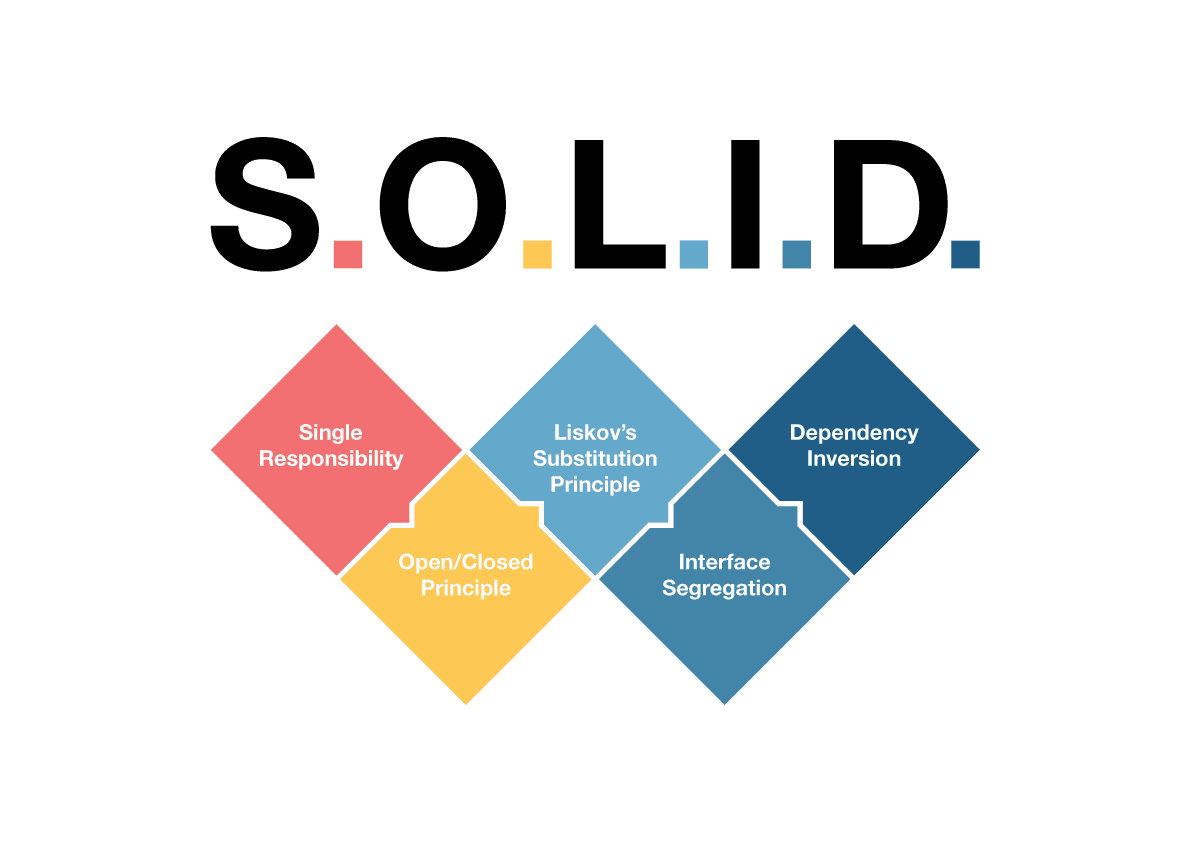Solid Principles in Java
My notes on the SOLID clean code architecture in Java.

BGL Tech via Medium
SOLID principles, a set of guidelines for writing clean, maintainable, and scalable code in object-oriented programming.
What is SOLID?
SOLID is an acronym that stands for five design principles intended to improve software design. These principles help developers create more understandable, flexible, and maintainable software by promoting good object-oriented design practices:
- Single Responsibility Principle (SRP): A class should have only one reason to change, meaning it should have only one job or responsibility.
- Open/Closed Principle (OCP): Software entities (classes, modules, functions) should be open for extension but closed for modification.
- Liskov Substitution Principle (LSP): Objects of a superclass should be replaceable with objects of a subclass without affecting the correctness of the program.
- Interface Segregation Principle (ISP): A client should never be forced to implement an interface it doesn’t use. Instead, many small, specific interfaces are better than a single general-purpose one.
- Dependency Inversion Principle (DIP): High-level modules should not depend on low-level modules. Both should depend on abstractions. Additionally, abstractions should not depend on details; details should depend on abstractions. Where does it come from?
The SOLID principles were introduced by Robert C. Martin (Uncle Bob). These principles are a core part of object-oriented design and have become a cornerstone for developers aiming to write better, more maintainable code. SOLID helps to keep codebases flexible, modular, and scalable by promoting separation of concerns and proper abstraction.
Breakdown (with examples)
Single Responsibility Principle (SRP)
A class should only have one responsibility or reason to change. For example, imagine a class Invoice. If the Invoice class is responsible for both calculating totals and printing invoices, it violates SRP. Instead, you could separate these concerns into two classes:
class InvoiceCalculator {
public double calculateTotal(Invoice invoice) { /* logic */ }
}
class InvoicePrinter {
public void print(Invoice invoice) { /* logic */ }
}
Open/Closed Principle (OCP)
Classes should be open for extension but closed for modification. For instance, if you have a PaymentProcessor class, it should allow you to add new payment methods (like PayPal or Credit Card) without modifying the existing code.
interface PaymentMethod {
void processPayment(double amount);
}
class CreditCardPayment implements PaymentMethod {
public void processPayment(double amount) { /* logic */ }
}
class PayPalPayment implements PaymentMethod {
public void processPayment(double amount) { /* logic */ }
}
In this case, you can add new payment methods by implementing PaymentMethod, without altering the PaymentProcessor.
Liskov Substitution Principle (LSP)
Subtypes should be substitutable for their base types without affecting the functionality. For example, if you have a class Bird, and a subclass Penguin, you should be able to use Penguin wherever Bird is expected, without breaking the behavior of the program.
Copy code
class Bird {
public void fly() { /* flying logic */ }
}
class Penguin extends Bird {
@Override
public void fly() {
throw new UnsupportedOperationException("Penguins can't fly");
}
}
Here, Penguin violates LSP because it cannot fly. Instead, you might want to separate birds into FlyingBird and NonFlyingBird classes to ensure substitution works properly.
Interface Segregation Principle (ISP)
Clients should not be forced to implement interfaces they do not use. For example, if you have a Worker interface that includes both work() and eat() methods, and a RobotWorker class that doesn’t eat, the robot is forced to implement a method it doesn’t need.
interface Workable {
void work();
}
interface Eatable {
void eat();
}
class HumanWorker implements Workable, Eatable {
public void work() { /* working logic */ }
public void eat() { /* eating logic */ }
}
class RobotWorker implements Workable {
public void work() { /* working logic */ }
}
By splitting the interface into two smaller, more specific interfaces, RobotWorker is no longer forced to implement unnecessary methods.
Dependency Inversion Principle (DIP)
High-level modules should depend on abstractions, not on concrete implementations. For example, a class that handles logging should depend on a Logger interface rather than a specific implementation like FileLogger or DatabaseLogger.
interface Logger {
void log(String message);
}
class FileLogger implements Logger {
public void log(String message) { /* logic to log to a file */ }
}
class Application {
private Logger logger;
public Application(Logger logger) {
this.logger = logger;
}
public void performTask() {
logger.log("Task performed");
}
}
By depending on the Logger abstraction, you can easily switch between different logging mechanisms without changing the Application class.
